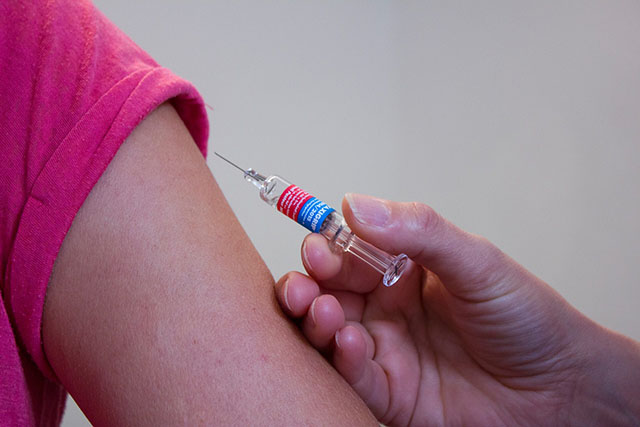
According to figures released last month vaccination rates for all nine vaccines are given to children before the age of five fell in the last year in England. In particular, there has been a dip in the uptake of the MMR (Measles, Mumps and Rubella) vaccine, a similar trend has been seen in many other countries too.
This decline is causing concern especially as there has also been a rise in the number of reported measles cases, which has now resulted in the UK losing its measles-free status in August.
In 2018 there were nearly 1,000 measles cases – more than double the number in 2016. Not surprisingly health experts are concerned about the fall in immunisation rates and are worried that outbreaks of preventable diseases, such as measles, will become more common putting children’s lives at risk.
This has prompted Health Secretary, Matt Hancock, to say he is “looking very seriously” at making vaccinations compulsory for all children going to school in England and he told the Tory Party conference he had taken legal advice on the issue. But could the Government make vaccines compulsory?
For vaccinations to be successful, there have to be enough people in a population vaccinated to reduce the likelihood of an outbreak of the disease — so-called herd immunity — this is 95 per cent. However, in England, the proportion of children receiving both doses of the MMR jab by their fifth birthday has fallen over the last four years to 87.2 per cent well below the herd immunity level of 95 per cent.
It is not just England that has seen this fall and the subsequent rise in measles cases; there were more than 82,500 cases in Europe in 2018, the highest number in a decade and three times the total reported in 2017. Experts are concerned about the decline in vaccination rates and say that it is putting children’s health at risk.
The reasons for the falling vaccination rates are unclear; there was a dip in up-take for the MMR vaccine in the late 1990s following a report linking MMR to autism. This research has since been discredited and in addition, millions of children throughout the world have been given the vaccine increasing the data available on the vaccine’s safety profile. Despite this, there is a growing anti-vaccination sentiment that has gained momentum on social media – so-called anti-vaxers.
The herd immunity concept means that if 95 per cent of the community is vaccinated the chances of an outbreak of the disease is limited. Uptake of vaccinations is unlikely to reach 100 per cent as there will always be some people who cannot have a vaccine for medical reasons – such as in the case of children who have cancer and weak immune systems or other immunity issues.
By not vaccinating your child, health experts argue you are not only putting your child at risk but also other potentially more vulnerable children in the community who cannot receive the vaccine. Given the fall in MMR uptake, it is not surprising that measles outbreaks are occurring.
Healthcare experts are looking at how to persuade parents to get their children vaccinated but could a Government policy of ‘compulsory’ vaccinations be a solution? It is hard to imagine how a government could enforce vaccinations but one option could be to make vaccinations compulsory for entrance into school. But is this the way to ensure parents get their children vaccinated?
This would be a bold step and would be seen by many as an infringement of a parent’s right to choose what is best for their child potentially eroding trust between the public and the healthcare professionals. In addition, a tough stance by the Government on such an issue is likely to inflame suspicion amongst the anti-vaxers, who are already mistrustful of the whole vaccine industry as it is. If these are the parents, you need to persuade strong-arm tactics are unlikely to be the best way forward.
Many in the health care profession are also sceptical about a ‘compulsory’ approach. The Royal College of Paediatrics and Child Health expert Dr David Elliman said ‘compulsory’ vaccinations could be counter-productive and make people more suspicious. Instead, many healthcare professionals, such as Dr Elliman, favour a more practical approach and want the Government to focus on ways to make vaccinations more accessible for parents to ensure up-take is increased and booster vaccinations followed up.
One example is having pop-up clinics in places like supermarkets, children’s centres and outside schools to make it easier for parents to access. In addition, pop-up clinics at places like music festivals could be used to reach out to older teenagers and young adults who missed out on the MMR or booster jab after concerns were first raised in the late 1990s. However, mobile pop-up clinics would require investment by the Government to be successful. The Government said the vaccination strategy would be out later in the year.
Rachel Kayani